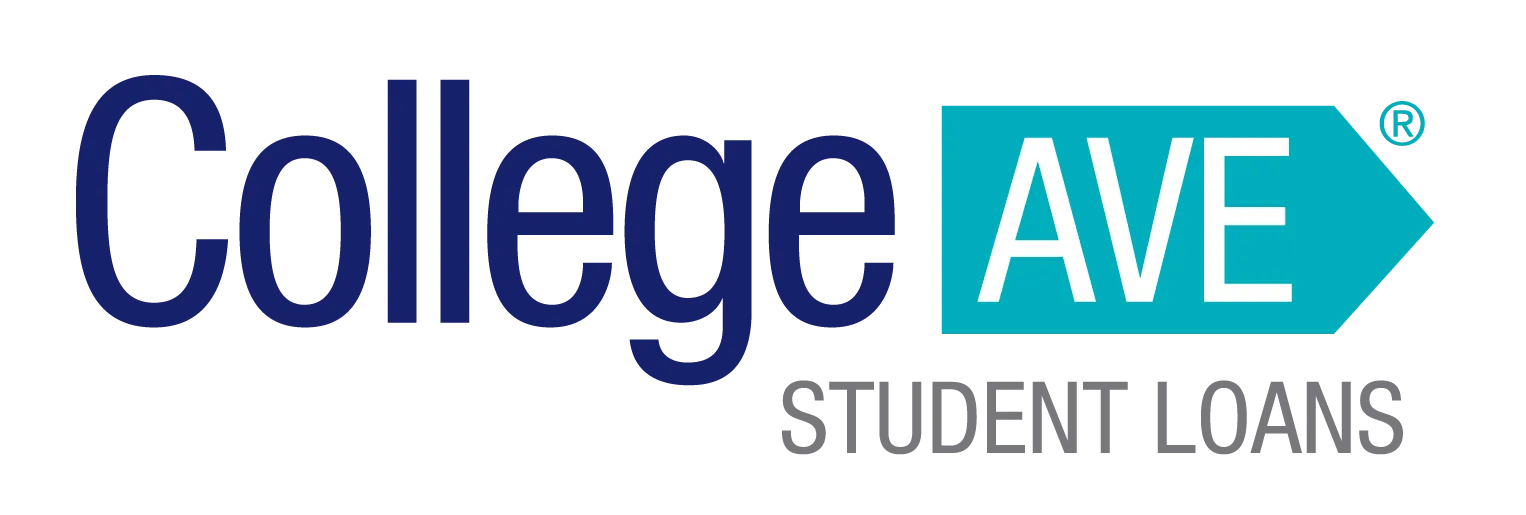Best Law School Loans
Compare the Best Student Loans
| LENDER | LEARN MORE | FIXED APR | VARIABLE APR | MAX. LOAN AMOUNT | MIN. CREDIT SCORE | |
|---|---|---|---|---|---|---|
 | Sallie Mae 4.4 ★ | See Offers | 4.50% to 15.49% with autopay | 6.12% to 16.45% with autopay | Cost of attendance, minus aid | Mid 600s |
 | College Ave 4.8 ★ | See Offers | 4.44% to 15.99% with autopay | 5.29% to 15.99% with autopay | Cost of attendance, minus aid | Mid 600s |
 | Earnest 4.7 ★ | See Offers | 4.43% to 15.90% with autopay | 5.39% to 16.20% with autopay | No maximum | 650 |
 | Credible 4.9 ★ | See Offers | 3.22% to 14.75% wih autopay | 1.79% to 13.85% with autopay | Not disclosed | 640 |
 | SoFi 4.6 ★ | See Offers | 4.49% to 14.83% with autopay | 5.49% to 14.03% with autopay | Cost of attendance, minus aid | 640 |
 | PNC 4.4 ★ | See Offers | As low as 4.59% with autopay* | As low as 5.19% with autopay* | $50,000 | Not disclosed |
 | Education Loan Finance 4.5 ★ | See Offers | 4.48% to 12.29% | 4.73% to 12.54% | Not disclosed | 680 |
 | Ascent Funding 4.7 ★ | See Offers | 4.48% to 15.38% with autopay | 5.94% to 15.83% with autopay | $200,000 | Not disclosed |
 | Citizens 4.4 ★ | See Offers | 4.43% to 12.86% with auto and loyalty discount* | 5.98% to 14.05% with auto and loyalty discount* | Up to $350,000 | Not disclosed |
 | LendKey 4.5 ★ | See Offers | 4.89% to 10.39% with autopay | 5.36% to 10.51% with autopay | Cost of attendance, minus aid | Not disclosed |
 | Sparrow Student Loans 4.8 ★ | See Offers | 2.99% to 14.98% with autopay | 0.99% to 12.99% with autopay | Cost of attendance, minus aid | No minimum |
 | MPower Financing 3.6 ★ | See Offers | As low as 14.75% with discounts | 100000 | Not required | |
 | RISLA 4.2 ★ | See Offers | 4.45% to 8.99% | 50000 | Not disclosed | |
 | Nelnet Bank 4.3 ★ | See Offers | 4.49% with autopay to 14.82% | 6.04% with autopay to 15.55% | Cost of attendance, minus aid | Not disclosed |
 | Discover 4.2 ★ | See Offers | 5.49% to 13.99% with autopay | 4.29% to 14.09% with autopay | Not disclosed | Not disclosed |
 | MEFA 4.1 ★ | See Offers | 5.35% to 7.95% | Not disclosed | Not disclosed | |
 | EDvestinU 4 ★ | See Offers | 6.250% – 9.935% | 7.960% – 10.885% | Not disclosed | 750 |
 | Prodigy Finance 3.2 ★ | See Offers | Not available | 6.7% to 14.5% | 220000 | Not required |
Best Private Student Loans
Popular Student Loans
Student Loan Forgiveness Requirements
Student loan forgiveness refers to programs or policies that cancel or reduce the outstanding balance of student loans for eligible borrowers. The specific requirements for student loan forgiveness can vary depending on the type of forgiveness program. Below are some common student loan forgiveness programs and their general requirements:
1. Public Service Loan Forgiveness (PSLF)
Borrowers must work full-time for a qualifying public service organization or non-profit organization.
They must make 120 qualifying monthly payments while working for the qualifying employer.
The payments must be made under an eligible repayment plan (such as an income-driven repayment plan).
After meeting these requirements, the remaining loan balance is forgiven.
2. Teacher Loan Forgiveness
Teachers must work full-time for five consecutive years in a low-income school or educational service agency.
The type of loan and the subject taught will determine the amount of forgiveness.
3. Income-Driven Repayment Plan Forgiveness
Borrowers on income-driven repayment plans may qualify for forgiveness after making qualifying payments for 20 or 25 years, depending on the plan.
Any remaining loan balance after the specified period is forgiven.
4. Perkins Loan Cancellation
Individuals must work in specific public service fields or professions, such as teachers, nurses, or law enforcement officers.
Eligibility criteria and the amount forgiven may vary based on the profession and the length of service.
5. Closed School Discharge
Borrowers may be eligible for discharge of their federal student loans if the school closes while they are enrolled or within 120 days of withdrawal.
6. Total and Permanent Disability Discharge
Borrowers who are totally and permanently disabled may qualify for loan forgiveness through a discharge program.
Please note that these are general guidelines, and the specific eligibility criteria and requirements for each forgiveness program can change over time. It is crucial to verify the latest information from official sources and consult with the U.S. Department of Education or your loan servicer for the most up-to-date details on student loan forgiveness programs in 2023.
How To Choose Best Law School Loans?
1. Loan Amount
The amount of loan you need to take out for law school will depend on the cost of tuition and other expenses. It is important to consider the total cost of your law school education and determine how much you need to borrow. You should also consider the amount of money you have saved or can borrow from family and friends.
2. Interest Rate
The interest rate on your loan will determine how much you will pay in total. It is important to compare the interest rates of different lenders to ensure you are getting the best deal. You should also consider whether the interest rate is fixed or variable. A fixed interest rate will remain the same throughout the life of the loan, while a variable interest rate may change.
3. Repayment Terms
The repayment terms of your loan will determine how long you have to pay it back and how much you will pay each month. It is important to consider the repayment terms of different lenders to ensure you are getting the best deal. You should also consider whether the repayment terms are flexible or not. Flexible repayment terms may allow you to adjust the amount you pay each month or the length of the loan.
4. Fees and Penalties
It is important to consider the fees and penalties associated with the loan. Some lenders may charge origination fees, late fees, or prepayment penalties. It is important to compare the fees and penalties of different lenders to ensure you are getting the best deal.
5. Loan Forgiveness Programs
Some lenders may offer loan forgiveness programs for law school graduates. These programs may allow you to have a portion of your loan forgiven if you meet certain criteria. It is important to compare the loan forgiveness programs of different lenders to ensure you are getting the best deal.
6. Reputation of the Lender
It is important to consider the reputation of the lender when choosing a law school loan. You should research the lender to ensure they are reputable and have a good track record of providing quality loans. You should also read reviews from other borrowers to get an idea of their experience with the lender.
Private Student Loan Interest Rate Trend
Overview
Private student loan interest rates have been on the rise in recent years. This is due to a variety of factors, including the increasing cost of college tuition, the rising cost of living, and the increasing demand for student loans. Private student loan interest rates are typically higher than federal student loan interest rates, and they can vary significantly from lender to lender.
Factors Affecting Private Student Loan Interest Rates
Private student loan interest rates are determined by a variety of factors, including the borrower’s credit score, the loan amount, the loan term, and the lender’s risk assessment. Borrowers with higher credit scores typically qualify for lower interest rates, while borrowers with lower credit scores may be charged higher interest rates. The loan amount and loan term also affect the interest rate, as larger loans and longer loan terms typically have higher interest rates. Finally, the lender’s risk assessment can also affect the interest rate, as lenders may charge higher interest rates to borrowers who are deemed to be higher risk.
Trends in Private Student Loan Interest Rates
Private student loan interest rates have been on the rise in recent years. According to the Consumer Financial Protection Bureau, the average interest rate on private student loans increased from 6.8% in 2013 to 8.5% in 2018. This trend is likely to continue, as the cost of college tuition and the demand for student loans continue to increase.
Impact of Private Student Loan Interest Rates
The increasing interest rates on private student loans can have a significant impact on borrowers. Higher interest rates mean that borrowers will have to pay more in total over the life of the loan. This can make it more difficult for borrowers to pay off their loans, and it can also make it more difficult for borrowers to qualify for other types of loans, such as mortgages or car loans.
Conclusion
Private student loan interest rates have been on the rise in recent years, and this trend is likely to continue. Borrowers should be aware of the factors that affect private student loan interest rates, as well as the impact that higher interest rates can have on their finances. It is important for borrowers to compare the interest rates of different lenders to ensure they are getting the best deal.
